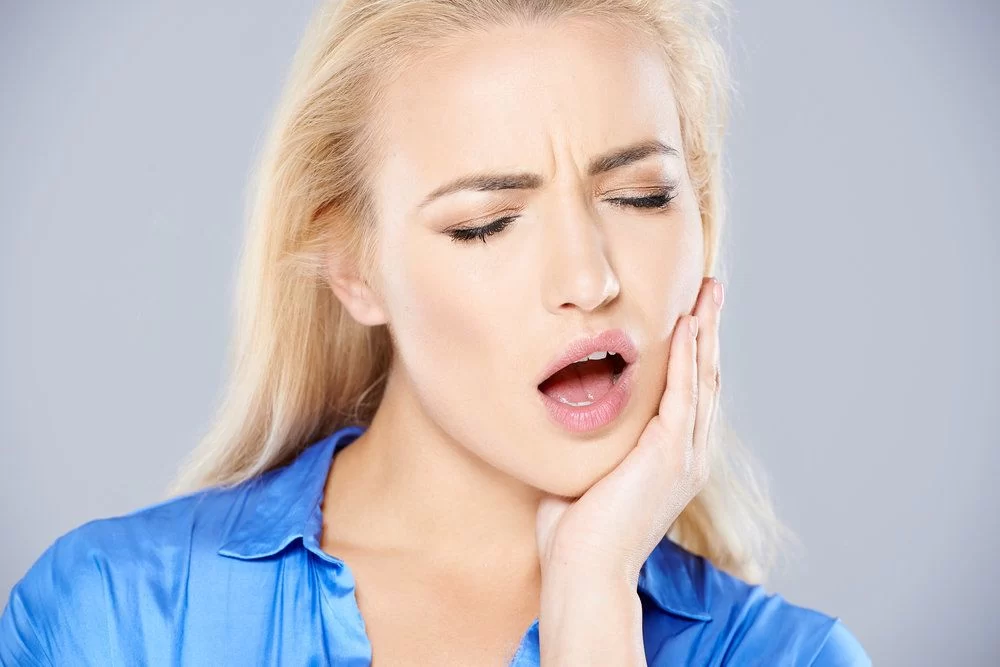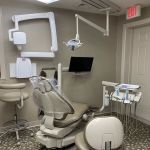
What to Do If Your Tooth Hurts When Chewing
- 1. Understanding the Causes of Tooth Pain When Chewing
- 2. Common Reasons for Tooth Pain While Eating
- 3. How to Relieve Tooth Pain When Chewing
- 4. When to See a Dentist for Tooth Pain
- 5. Tips for Preventing Tooth Pain When Chewing
- 6. Conclusion: Taking Care of Your Oral Health
1. Understanding the Causes of Tooth Pain When Chewing
Tooth pain when chewing can be a sign of a variety of issues affecting your teeth or gums. It's important to understand that chewing places pressure on your teeth, which can highlight underlying problems. Whether it's a sharp pain, a dull ache, or sensitivity to hot or cold foods, pinpointing the root cause of the pain is the first step toward relief.
Some common causes of tooth pain when chewing include tooth decay, gum infection, cracked teeth, or even tooth sensitivity. In some cases, it could be due to a recent dental procedure or the onset of a more serious dental condition.
2. Common Reasons for Tooth Pain While Eating
There are several possible reasons why your tooth may hurt when chewing. Below are some of the most common causes:
- Tooth Decay: Cavities are one of the most frequent culprits. When the decay reaches the inner layers of the tooth, it can lead to significant pain when chewing or applying pressure.
- Gum Infection: If you have an infected or abscessed tooth, the infection can cause throbbing pain, especially when chewing. Gum disease or gingivitis can also lead to discomfort when eating.
- Cracked Teeth: A fractured tooth can cause sharp pain when chewing, especially if the crack is deep enough to affect the nerve inside the tooth.
- Tooth Sensitivity: Sensitive teeth can react to hot, cold, or sweet foods. If the enamel has worn away or gums have receded, your teeth may become more sensitive, leading to pain when chewing.
If you're experiencing pain while chewing, it's important to consider these possible causes and monitor the symptoms to decide what actions to take next.
3. How to Relieve Tooth Pain When Chewing
If you’re dealing with tooth pain while chewing, there are several things you can try to relieve discomfort. While these methods can help temporarily, it's essential to see a dentist for a permanent solution. Here are some tips:
- Use Over-the-Counter Pain Relief: Non-prescription pain relievers such as ibuprofen or acetaminophen can help reduce the pain while you wait to see a dentist.
- Salt Water Rinse: Gargling with warm salt water can help reduce swelling and clear any infection in the gums.
- Cold Compress: Apply a cold compress to the outside of your mouth near the painful tooth to reduce swelling and numb the area.
- Avoid Certain Foods: Avoid chewing on the side of the painful tooth, and steer clear of hot, cold, or sugary foods that could trigger pain.
These remedies can offer some relief, but they don't address the underlying cause of the pain. Consulting with a dentist is the best way to get to the root of the problem.
4. When to See a Dentist for Tooth Pain
While some toothaches can be temporary and mild, others may indicate a more serious issue that requires professional care. You should visit a dentist if:
- The pain lasts more than a couple of days or gets worse.
- You experience severe pain, especially when chewing or touching the tooth.
- You notice swelling in your gums, face, or jaw.
- You have a fever or foul-tasting drainage from the affected tooth.
A dentist can perform a thorough examination, take X-rays if needed, and provide the appropriate treatment to address the problem, whether it's a cavity, gum infection, or cracked tooth.
5. Tips for Preventing Tooth Pain When Chewing
Prevention is always better than cure when it comes to tooth health. Here are some steps you can take to avoid tooth pain when chewing:
- Practice Good Oral Hygiene: Brush your teeth twice daily, floss daily, and use mouthwash to keep your teeth and gums healthy.
- Visit the Dentist Regularly: Regular checkups and cleanings are essential for preventing issues like cavities, gum disease, and tooth infections.
- Avoid Hard Foods: Be mindful of hard or sticky foods that can damage your teeth. If you have sensitive teeth, try to avoid foods that could exacerbate the pain.
- Protect Your Teeth: If you grind your teeth at night, consider using a mouth guard to protect your teeth from damage.
By following these tips, you can reduce the chances of developing tooth pain when chewing and maintain better oral health overall.
6. Conclusion: Taking Care of Your Oral Health
Experiencing tooth pain when chewing is something that no one wants to deal with, but it’s often a sign that something more serious is going on. Understanding the causes of tooth pain and how to relieve it is essential to managing your oral health. If you're unsure about the cause of your pain or if it persists, it's always best to seek professional care. A dentist can provide the appropriate treatment to ensure your smile stays healthy.
If you’re looking for expert dental care, visit Dentistry Toothtruth for more information or to schedule a consultation today.







 Contemporary Dentistry4.0 (46 review)
Contemporary Dentistry4.0 (46 review) Richmond Pediatric Dentistry and Orthodontics4.0 (53 review)
Richmond Pediatric Dentistry and Orthodontics4.0 (53 review) Dr. Maha Blaibel, DDS5.0 (6 review)
Dr. Maha Blaibel, DDS5.0 (6 review) Lawndale Christian Health Center Dental Clinic2.0 (34 review)
Lawndale Christian Health Center Dental Clinic2.0 (34 review) Dentists of South Pasadena4.0 (124 review)
Dentists of South Pasadena4.0 (124 review) Shiney Smiles Orthodontics5.0 (165 review)
Shiney Smiles Orthodontics5.0 (165 review) The Importance of Oral Health Education During Pregnancy for a Healthy Pregnancy
The Importance of Oral Health Education During Pregnancy for a Healthy Pregnancy Best Tips for Brushing Your Teeth Properly for Healthy Gums: Essential Techniques for Oral Health
Best Tips for Brushing Your Teeth Properly for Healthy Gums: Essential Techniques for Oral Health Why Skipping Dental Checkups Can Lead to Bigger Oral Health Problems
Why Skipping Dental Checkups Can Lead to Bigger Oral Health Problems Advantages of Porcelain Dental Restorations
Advantages of Porcelain Dental Restorations How Can Diabetes Cause Tooth and Gum Problems? Preventing and Managing Oral Health Issues
How Can Diabetes Cause Tooth and Gum Problems? Preventing and Managing Oral Health Issues Healthy Habits for Promoting Good Oral Health and Hygiene: Tips for a Healthy Smile
Healthy Habits for Promoting Good Oral Health and Hygiene: Tips for a Healthy Smile